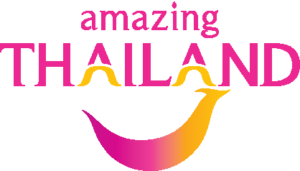Philippines
ISLAND CASTAWAY AT FLOWER ISLAND ECO RESORT PALAWAN.
Playing Castaway at an Eco Resort in Palawan
When I decided to go and stay at Flower Island Eco Resort, Palawan, I didn’t expect that I’d be playing desert island castaway by myself for a few days.That’s the advantage of island hopping around the Philippines during low-season. Many resorts stay open year-round but have very few occupants (and offer discounted rates) in the off-months.
Palawan is known to be the front runner for Eco Tourism in the Philippines. Palawan is also known as one of the last un-discovered frontiers of South East Asia: although that, may be rapidly changing. But not yet on Flower Island at least.
Flower Island Eco Resort Palawan is located an hour off the north eastern coast of Palawan, accessible from the fishing village of Tay-Tay. The resort is the only property on Flower Island, and is owned by a Frenchman who is also a partner in local pearl farming operator Jewelmer.

Not that you really need a sign, but anyway…
How to Get to Flower Island Eco Resort Palawan
Flower Island is a private boat ride away from the port near the town of Tay-Tay (the boat ride takes about an hour). Since the Island is private there are no public boat or ferry services here, instead you need to book a private boat transfer through the resort.
To get to Tay Tay, you can take a shuttle from Puerto Princesa airport or from the city itself to Tay Tay. The journey takes about four hours. You can organise a private driver through the resort, but the better value option is to share a transfer.
Staying at Flower Island Eco Resort
The only building on the island, has been gradually added to over the years, and has been carefully constructed using as many low-impact materials as possible. The philosophy here is to use concrete only as a last resort; thereby keeping the island as close as possible to its original and natural state: Most of the cottages are made from bamboo.
Cottages (Rooms): Space being no object, the cottages are well spaced out along the beachfront. All rooms face directly on to the ocean and have a terrace or balcony, complete with sea view (some rooms are closer to the sea so have a more direct view than others), chairs and/or a hammock. Beds are large and draped in mosquito nets, giving the place even more of an island hideaway feel. Standard Cottages have a fan and cold water, and are classic bamboo-style huts. Upgraded room types are larger, offer air conditioning, and solar heated hot showers and baths. I was hosted in an air conditioned cottage, but would have been more than comfortable enough in a fan cooled one.
Eco Credentials: The eco resort does its bit for the environment by separating waste and recycling where possible, although in a remote island setting this is sometimes a downright challenging task. In a country where it’s pretty much impossible to recycle non-biodegradable waste on islands, here plastic waste—such as water bottles—is turned in to bunker fuel.

Creating greenery from plastic.
Vegetables are grown on property, fish for dinner is caught at the end of the resort’s pier by line, and a number of free range chickens are kept. In addition the resort has invested in water pumps that allow them to share their water supply with nearby islands that are inhabited by locals, who would otherwise be struggling for water access.
Meals: Accommodation is sold on a full-board basis. Since the resort is the on its own island, you’ll eat all your meals at the resort. I enjoyed wonderfully fresh seafood everyday – crab, squid, muscles and fish. There’s no ‘menu’ as such – simply tell the kitchen if there are things you don’t eat, and you’ll be surprised each meal time with a 3 course tasty meal. Drinks are not included (except drinking water), and the resort also has a beach bar for cocktails to accompany the amazing sunsets. The only thing I missed and would have liked more of was fresh fruit, which was a shame – but seeing as none is grown on the island it seemed difficult to import the delicious mangoes found elsewhere in the Philippines.
Facilities at the eco resort include the restaurant, beach bar, volley ball, snorkelling, stand up paddle boarding, and a short walk to the island lighthouse which offers a panoramic view of the sea and neighbouring islands. Flower Island Eco Resort Palawan also offer complimentary trips to the nearby pearl farm for guests staying three nights or longer.
Getting there: Boat Transfers (by private boat) are available from Tay-Tay (4 hours drive from Puerto Princesa) or in combination with a mini-van from El Nido. These need to be booked before hand with the resort and are at an additional cost. Since you’re paying for the whole boat & van it’s much more cost effective if you can share – ask the resort if there are other guests arriving/departing on the same days as you.

Exterior of a Champagne (Standard) Cottage.
Unexpected Benefits of Pearl Farming in Palawan
I admit that prior to visiting Flower Island Eco Resort Palawan, I had little idea of how pearls are produced at all. Here at the pearl farm which neighbours Flower Island, I was taken on a tour which explained the meticulous process of creating pearls through farming.
First up, I learned that gold pearls are mostly produced here, the most valuable and sought after of all pearls. Secondly, I learned that in today’s pearl market, hardly any naturally formed pearls are available—with over 99% farmed.

Watching the sunset from just outside my cottage at Flower Island Eco Resort.
It’s a delicate process, and a temperature change of a couple of degrees is enough to derail the whole development of the pearl. Simply put, a bead is inserted into the oyster, and the oysters are then cleaned at regular intervals once they have been put back into the ocean, weighed, and monitored. From insertion to harvesting, development of a pearl takes anywhere between 2-5 years.
The upshot of this is that pearl farming is an extremely delicate process, and one that is highly affected by changes to the oceans and our climate. Because of the commercial interests in the pearl farming industry and associated profits, it adds urgency to protecting the waters of Palawan and makes it easier to champion environmental concerns. Cyanide and dynamite fishing, along with chemical waste, coral damage and global warming are just some of the issues affecting the oceans and thereby the pearl farming industry. Jewelmer, the owners of Flower Island Eco Resort Palawan, believe that there is a direct correlation between man’s respect for nature, for each other, and the quality of the pearl harvest.
Visiting Save the Palawan Seas Foundation

The Save the Palawan Seas Foundation.
The Resort supports local not for profit organisation Save the Palawan Seas. I visited the foundation and had a chance to look around their rapidly growing organic farm. The organisation focuses on spreading awareness of organic farming and supplying seeds to local village so that they can grow their own fruits and vegetables, on educating about the risks and negative effects of deforestation, dynamite and cyanide fishing.
They’re also now educating island communities on the benefits of seaweed farming—a low cost, high yield and relatively easy crop to grow which helps avoid deforestation on the island in order to create more farm lands.
I was really inspired by the work that Save Palawan Seas are doing and the uphill battle that they’re fighting to protect their Island against the environmental threats of this part of the world.





